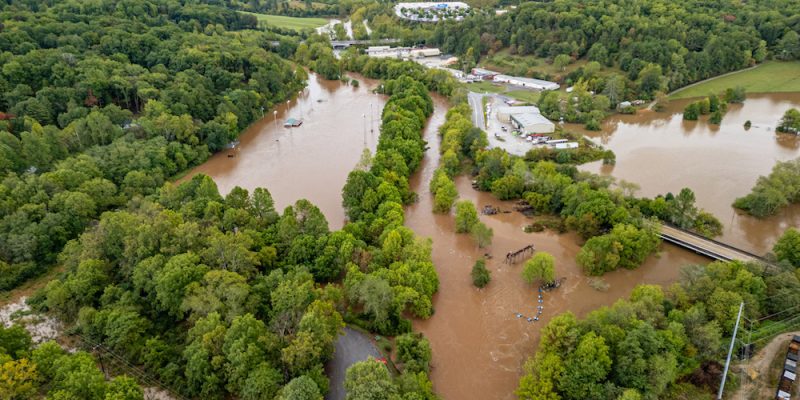When Hurricane Helene struck the western part of North Carolina in late September, it caused unprecedented flooding and mass devastation. The storm’s ferocity and the extent of the damage left the state reeling. Governor Roy Cooper declared Helene to be one of the worst storms in modern history for parts of North Carolina, a statement that resonated deeply with the affected communities.
In the immediate aftermath of Hurricane Helene, the scenes of destruction were harrowing. Homes were submerged, roads were washed away, and entire neighborhoods were left in ruins. The sheer volume of water overwhelmed the region’s infrastructure, making rescue and recovery efforts incredibly challenging. Many residents were left stranded, and emergency services worked tirelessly to reach those in need.
Amidst the chaos, Murdoch Developmental Center faced a unique challenge. The infrastructure needed to support the people at a sister DSOHF facility had been destroyed. This news came as a heavy blow, but the response from the Murdoch community was nothing short of extraordinary. Administrative leaders at Murdoch reached out across campus, asking for volunteers to assist with providing care to those who were relocated.
The call for help did not go unanswered. Despite the lack of guaranteed emergency pay or other additional compensation, the response from across campus was overwhelming. The willingness of staff to step up in such dire circumstances was both heartwarming and inspiring. Even though the situation was dire, the spirit of the Murdoch community shone brightly.
In an effort to provide continuity to those who were relocated, it was decided to assemble three teams to work in three-day rotations, working 16-hour shifts. This rigorous schedule ensured that there was always a dedicated team available to provide care, despite the challenging conditions. Every three days, a team would leave to provide direct care to people they had not encountered before, demonstrating remarkable adaptability and dedication.
The Murdoch Center Foundation played a crucial role in supporting these efforts. Recognizing the immediate financial needs of the volunteers, the Foundation stepped in to provide initial assistance with meals and other necessities. This support was essential in enabling the volunteers to focus on their critical work without worrying about their personal needs.
The response from the Murdoch community was a testament to the power of collective action and the human spirit. The volunteers, driven by a profound sense of duty and compassion, worked tirelessly to ensure that those displaced by the storm received the care and support they needed. Their efforts did not go unnoticed, and the gratitude felt by the affected individuals and their families was immense.

